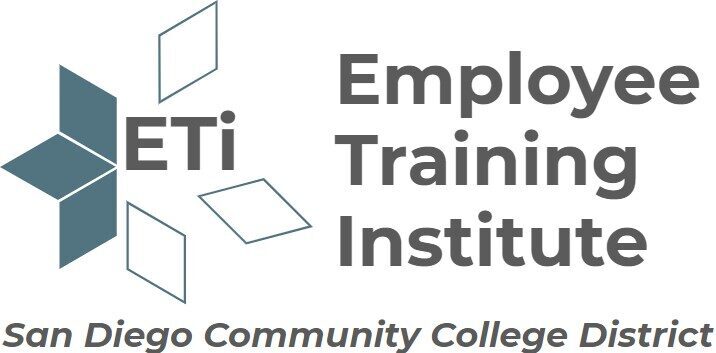Become a Spanish/English Medical Interpreter
Medical interpreters work in hospitals, clinics and healthcare environments where patients and healthcare professionals require interpretation between Spanish and English. This 100% online course will prepare you to interpret medical terminology between English and Spanish. Using simultaneous, consecutive, and sight translation skills you will be ready to serve in a variety of hospital and medical specialties.
Registration and Enrollment
This course is 100% online. Start anytime!
Course Details
- Develop best-practice interpreting techniques using simultaneous, consecutive and sight translation methods.
- Learn medical terminology in Spanish and English and transfer terms into the opposite language.
- Understand social and personal protocols for interpreting on behalf of Spanish-speaking patients.
- Master the medical interpreter’s code of ethics.
- Prepare to sit for a Spanish Medical Interpreter examination.
I. INTRODUCTION TO MEDICAL INTERPRETATION
- Medical Vocabulary – The Human Body
- Pre-Anesthesia Record Form
- Medical Vocabulary – System and Senses
- Refusal to Permit Blood Transfusion
- Medical Vocabulary – Signs and Symptoms
- Medical Condition Form
- Intravenous Contrast Injection Consent
- Medical Vocabulary – Facilities and Staff
- Discharge Instructions
II. INTRODUCTION TO MEDICAL INTERPRETATION
- Medical Vocabulary – Pediatric/Neonatal Care
- Medical Vocabulary – Family Planning
- Interpreting for Hospitals – Parents’ Rights & Responsibilities
- Medical Vocabulary – Communicable Diseases
- Interpreting for Hospitals – Taking Care of Mom
- Interpreting for Hospitals – The “Baby Blues”
- Medical Vocabulary – Sexually Transmitted Diseases
- Interpreting for Hospitals – Consent for Cath Lab Procedure
- Medical Vocabulary – Dental Health
- Medical Vocabulary – Substance Abuse
III. SIGHT TRANSLATION FOR MEDICAL INTERPRETERS
- Principles of Localization
- Re-Structuring Techniques
- Principles of Reversibility and Non-Reversibility of Medical Terms
- Interferences – Filtering Syntactical and Grammatical Interferences
- Style in the Delivery
- Colloquialism
- Medical Vocabulary – Treatment Procedures, Instruments, Supplies and Medications
- Industrial Accidents – Workers’ Compensation
- Medical Vocabulary – Pregnancy and Delivery
- Simultaneous Techniques
- Consecutive Techniques
- Interpreting Laboratory Practices
- Interpreting for Hospitals – Environmental History Form for Pediatric Asthma Patient
- Interpreting for Hospitals – OSHA Required
- Idiomatic Expressions – English into Spanish
- Interpreting for Hospitals – Adult History Form
- Interpreting for Hospitals – Authorization for Use or Disclosure of Imaging Information
- Legal Terminology Used in Medical Matters
- Interpreting for Hospitals – Advance Directive
- Interpreting Laboratory Practices
- Exam Taking Techniques – Objective Versus Subjective Grading
- Transferring of Low, Regular, and High Register Documents into the Opposite Language
- Stability in the Transfer
- Interpreting Laboratory Practices
There is no formal education requirement for either language, but bilingual Spanish and English fluency is required.
There is no formal education requirement for either language, but bilingual Spanish and English fluency is required.
Nestor Wagner
Nestor Wagner is a Certified Medical Interpreter as well as a Certified Court Interpreter. He has been teaching interpreters since 1990. He contributes to the certification process for Immigration Interpreters and Analytical Linguists. He is active in the professional and scholarly community for advancing interpreting skills. He holds a master’s degree from the University of Washington.
$2,595.00 (USD)
This course is 100% online.
| Total Hours | Duration | Start Times |
|---|---|---|
| 200 COURSE HRS | 9 MONTHS | Start Anytime! |
Job Outlook
The US Bureau of Labor Statistics expects interpreters and translators to earn around $24.92 per hour or $51,830 per year on average.
Specializing in medical terminology and earning certification as a medical interpreter greatly
FAQs
WHAT DOES A MEDICAL INTERPRETER DO?
According to the National Council on Interpreting in Health Care (NCIHC), the interpreter’s most important role is to facilitate comfortable and clear communication between patients and healthcare professionals.
WHERE CAN MEDICAL INTERPRETERS WORK?
Generally, medical interpreters work in any healthcare setting where health-related interviews between a healthcare provider and a patient are held. Interpreters may also serve in other healthcare-related services such as financial assistance.
WHAT ARE THE REQUIREMENTS FOR EXCELLENCE AS A MEDICAL INTERPRETER?
The NCICH lists six key qualifications for effective medical interpreting:
- Language fluency
- Ethical conduct
- Cross-cultural understanding
- Health and medical terminology
- Realtime interpreting skill
- Correct interpretation of instructions
HOW DO MEDICAL INTERPRETER GET CERTIFIED?
Certification is an assessment process by which a professional organization tests and approves a medical interpreter’s qualifications. Certification includes the assessment of language, terminology, ethics and the interpretation process.
IS CERTIFICATION IMPORTANT FOR MEDICAL INTERPRETERS?
Certification indicates that a professional has undergone a rigorous and well-organized program of study and passed a recognized examination. It provides a clear understanding of an interpreter’s capabilities and commitment to excellence.
WHAT IS THE DIFFERENCE BETWEEN AN “INTERPRETER” AND A “TRANSLATOR”?
“Interpreting” involves spoken communication while “translation” is dedicated to written documents. Medical interpreters help patients and healthcare professionals communicate through spoken conversations and interviews.
“I was able to go at my own pace and when help was needed, it was there.”
S.S., Dabney S. Lancaster Community College

